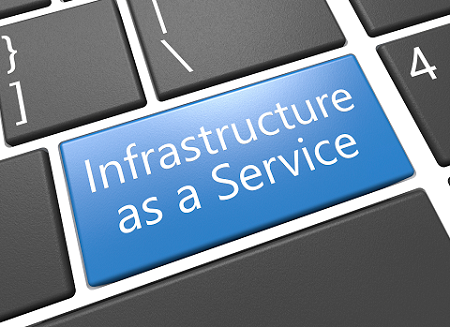Microsoft, Facebook Team Up To Build Cross-Atlantic CableMicrosoft, Facebook Team Up To Build Cross-Atlantic Cable
Microsoft and Facebook are joining forces to construct the "MAREA" undersea cable, which will deliver high-speed connectivity across the Atlantic.


7 Ways IaaS Delivers Business Value
7 Ways IaaS Delivers Business Value (Click image for larger view and slideshow.)
Microsoft and Facebook are partnering up to build a massive undersea cable across the Atlantic.
Dubbed "MAREA," from the Spanish word meaning "tide," the cable will span 6,600 kilometers (4,101 miles) and connect Virginia Beach, Va., with Bilbao, Spain. From there, it will extend to network hubs in Europe, Africa, the Middle East, and Asia.
The project is intended to meet a growing demand for fast, resilient connectivity for Facebook, Microsoft, and their customers. People and businesses alike expect to have instant access to information they need.
[Read: Microsoft partners with startups to improve global connectivity.]
"We're seeing an ever-increasing customer demand for high-speed, reliable connections for Microsoft cloud services, including Bing, Office 365, Skype, Xbox Live, and Microsoft Azure," wrote Frank Rey, director of global network acquisition for Microsoft Cloud infrastructure and operations, in a May 26 statement.
As the world continues to move towards a cloud-based future, Rey continued, Microsoft is working to build a global infrastructure so it can support reliable and low-latency connectivity for cloud services.
"This robust, global infrastructure will enable customers to more quickly and reliably store, manage, transmit and access their data in the Microsoft Cloud." MAREA will be the highest-capacity undersea cable to cross the Atlantic, with 8 fiber pairs and an initial estimated capacity of 160Tbps.
Microsoft and Facebook are building the cable in partnership with Telxius, Telefónica's telecommunications infrastructure company. Telxius, which has experience in subsea cables, will operate and manage the MAREA system.
MAREA is being developed with an "open" design so it can work with a variety of networking equipment. This methodology is good for customers, who benefit from lower costs, easier equipment upgrades, and faster growth in bandwidth rates, because the system will be able to "evolve at the pace of optical technology innovation."
Facebook aims to meet its goal of connecting people around the world. "By creating a vendor-agnostic design with Microsoft and Telxius, we can choose the hardware and software that best serves the system and ultimately increase the pace of innovation," wrote Najam Ahmad, vice president of network engineering at Facebook, in a statement.
Ahmad noted that Facebook hopes to do more projects like this in order to boost efficiency and collaboration. Facebook believes this is how most subsea cables will be constructed in the future, he said.
Rey also noted that MAREA will be built south of existing transatlantic cable systems in the New York/New Jersey region. This separate placement will ensure stronger and more reliable connections to customers around the world.
The idea of constructing subsea cables to improve connectivity is not new. In fact, both Microsoft and Facebook have previously made investments to improve connectivity across oceans and continents.
In May 2015, Microsoft announced a partnership with Hibernia and Aqua Comms for a cross-Atlantic project. Each company will connect one high-speed data cable in order to connect Microsoft's data center infrastructure in North America, Ireland, and the UK.
In 2012, Facebook invested in an underwater Internet cable dubbed the Asia Pacific Gateway to improve connectivity for people and businesses. The 10,000-kilometer (6,214-mile) cable would run directly from Malaysia to South Korea and Japan, with sections extending to different countries, reported the BBC.
With respect to their newest project, Microsoft reports both companies have met the requirements to go "Contract-in-Force" with their plans. Construction for the MAREA cable will begin in August 2016, and is expected finish in October 2017.
Help Wanted. information's hosted, searchable job board can help you find your next gig. Start your search today.
About the Author
You May Also Like






